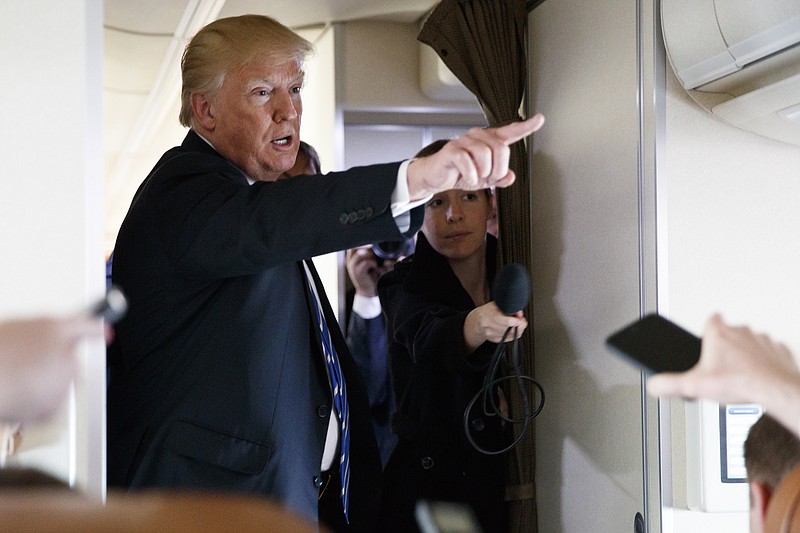WASHINGTON - President Trump doubled down last week on his repulsive charge that immigrants from south of our border are "rapists." It was another sign of what an appalling man he is, but also an indication of how much political trouble he faces.
Trump is a demagogue who relies on the angry energy of his supporters. But he finds himself in an untenable position: No matter how many hot buttons he pushes, he cannot arouse the passion he needs on his own side to counter the determination and engagement of those who loathe him.
So far, Trump has become, unintentionally, one of the most effective organizers of progressive activism and commitment in the country's history.
Revulsion at Trump is now the driving force in American politics, and this petrifies the traditional GOP.
Trump's latest rape comments illustrated his obsession with pushing issues that appeal to Fox News and conservative talk radio fans at the expense of building his standing with the broader electorate. His outburst came last Thursday at a West Virginia event where he was supposed to be touting the tax cut that Republicans in Congress hope to run on.
But after calling his planned speech "boring" and tossing the pages of his text into the audience, he proceeded to praise himself for his 2015 announcement speech in which he declared that Mexican immigrants were "rapists."
Without offering any proof, he said that women coming to the United States in the so-called caravans he has been ranting about incessantly "are raped at levels that nobody has ever seen before."
While there is some conflict in the polling about Trump, a consistent finding is that those who strongly oppose him far outnumber those who are enthusiastically for him. A Morning Consult poll last week, for example, found that overall, 54 percent of registered voters disapproved of Trump's performance while 41 approved. More important is the fact that 41 percent strongly disapproved of him while only 19 percent strongly approved.
Seen another way, the poll showed that three-quarters of those who disapprove of Trump hold intense feelings against him; less than half of those who approve are comparably fervent in their embrace. Trump's opponents are deeply motivated to put a check on his presidency. His supporters are discouraged and demobilized.
A fifth of the country can provide an ample audience for a cable network and a lot of radio hosts. It is not enough to win an election. In the nominally nonpartisan Wisconsin judge's race, as Michael Tomasky noted in The Daily Beast, several counties that had moved from Barack Obama in 2012 to Trump in 2016 swung back to Rebecca Dallet, the choice strongly endorsed by Democrats. And this came in a low-turnout race. In the Obama years, small turnouts benefited Republicans. The energy gap means that this pattern is now reversed.
A Washington Post-Kaiser Family Foundation Poll released Friday brought home additional concrete results of this imbalance. It found an astonishing one in five Americans reporting that they had joined protests and rallies since the beginning of 2016 - and that 70 percent of them disapproved of Trump.
The dilemma for Republican politicians tempted to cut-and-run from Trump is that doing so might only further dispirit the party's core and diminish Trump's already parlous popularity. For his part, Trump knows only the politics of outrage. It is looking like a strategy with a very short shelf life.
Washington Post Writers Group
